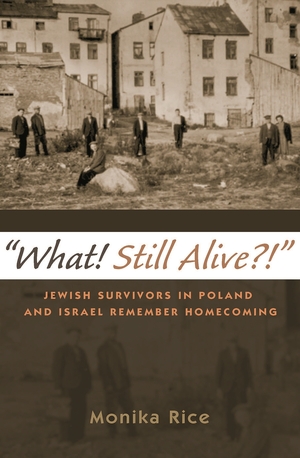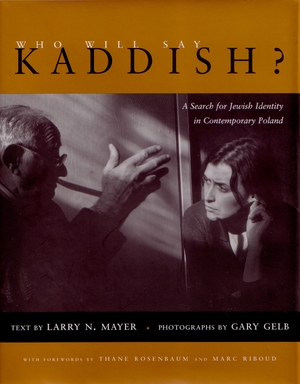"While an exchange between . . . executioner and victim remained for a longtime inconceivable, a dialogue between their children or grandchildren now seems possible and even necessary. [The] volume . . . is an illustration of this."—Elie Wiesel
"Second Generation Voices is a brilliant anthology, a must-read for anybody who want to learn more about the transmission of trauma from victims to children."—Ursula Duba, author of Tales from a Child of the Enemy
"An anthology in which people that the Holocaust touched second hand reflect on their relationships with their parents, society at large, and the events of the past. They consider the search for roots, inheriting parental trauma, the journey to parents’ birthplaces and to death camps, issues of faith and religion, identity and the Yiddish language, confronting a repressed past, and whether dialogue is possible."—Booknews
Description
Heirs to the legacy of Auschwjtz, the children and grandchildren of Holocaust survivors and perpetrators have always been thought of as separated by fear and anger, mistrust and shame. This groundbreaking study provides a forum for expression in which each group reflects candidly upon the consuming burdens and challenges it has inherited.
In these intensely personal and frequently dramatic pieces, understandable differences surface. The Jewish second generation is unified by a search for memory and family. Their German counterparts experience the opposite. Yet surprising common ground is revealed. Each group emerges out of households where, for vastly different reasons, the Holocaust was not mentioned. Each struggles to break this barrier of silence. Each
has witnessed the continued survival of parents and must grapple with living in households haunted by denial. And each knows it is his or her charge to shape the Holocaust for future generations.
To be sure, there is disagreement among the groups about the need for-or wisdom of-dialogue. Yet Second Generation Voices boldly engenders authentic grounds for discussion. Issues such as guilt, anger, religious faith, and accountability are explored in deeply felt poems, essays, and narratives. Jew and German alike speak openly of forming and affirming their own identities, reconnecting with roots, and working through their own “psychological Holocaust.”
About the Author
Alan L. Berger holds the Raddock Eminent Scholar Chair for Holocaust Studies and directs the Center for the Study of Values and Violence after Auschwitz at Florida Atlantic University. He is the author of Crisis and Covenant: The Holocaust in American Jewish Fiction, Children of Job: American Second Generation Witnesses, and editor of Judaism in the Modern World.
Naomi Berger is a marriage and family therapist on the staff at the Counseling Center at Florida Atlantic University and is in private practice.
6 x 9, 398 pages
June 2001




